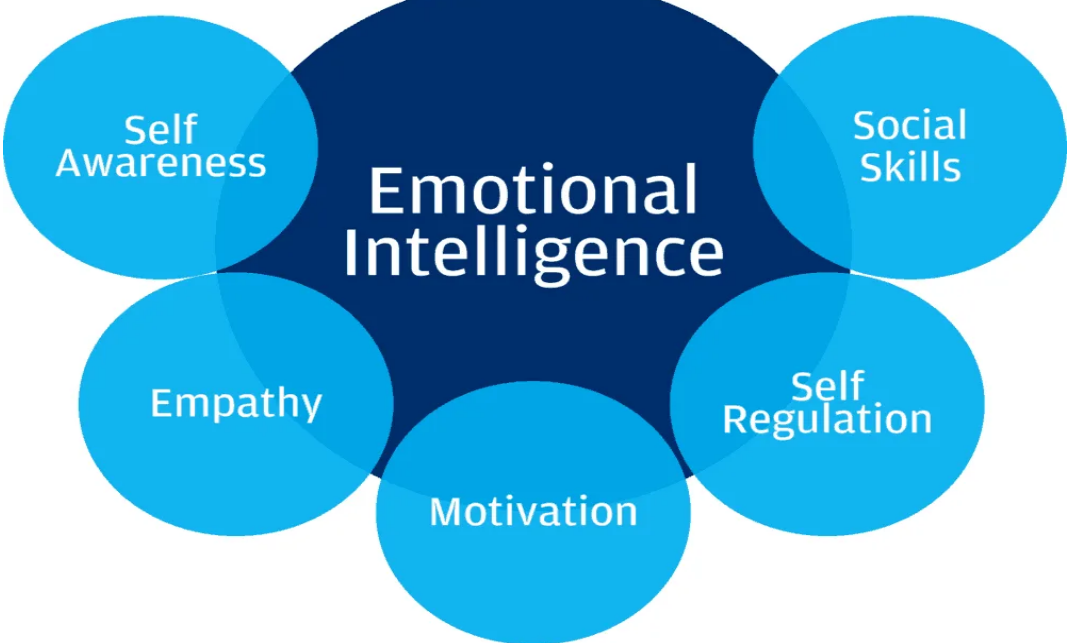By Polina Pallieraki,
Emotional Intelligence (EI) is one of the most important factors that determine the quality of human life, both in personal and professional relationships. In a world that often emphasizes logic and knowledge, understanding and managing our emotions, as well as the ability to perceive and respond to the emotions of others, are critical skills for success and well-being. EI is not just a set of skills but also a way to connect more deeply with ourselves and those around us, manage conflicts, and build meaningful relationships. Here, we will explore the importance of emotional intelligence, its core pillars, and how it can positively influence every aspect of our lives.
The concept and core dimensions of emotional intelligence
Emotional intelligence (EI) refers to an individual’s ability to recognize, understand, and manage their own emotions, as well as those of others. It consists of five core pillars: Self-awareness, self-regulation, empathy, social skills, and motivation. Self-awareness forms the foundation of EI, allowing individuals to recognize their emotional states. Following this, self-regulation involves managing these emotions in a way that promotes mental balance and effectiveness. Finally, empathy, the ability to perceive and understand the emotions of others, is combined with communication and relationship-building skills to foster collaboration and connection.
The importance of emotional intelligence in everyday life
Emotional intelligence (EI) is essential in all aspects of daily life, as it helps us manage interpersonal relationships more effectively and respond to challenges with greater resilience. On a personal level, EI boosts self-esteem and emotional resilience, enabling individuals to handle difficulties with composure. In the workplace, those with high EI better understand the needs and emotions of their colleagues, making them more productive leaders and collaborators. Moreover, it aids in conflict resolution and decision-making, considering not only facts but also the human dimensions of situations.

Developing emotional intelligence
Although EI is partially influenced by genetics and early life experiences, it can be cultivated and developed through conscious practice and effort. Practicing self-reflection and recognizing one’s emotions are important initial steps. Empathy can be enhanced through active listening and understanding others perspectives. Additionally, techniques like meditation or mindfulness improve self-regulation and emotional balance. By continuously developing these skills, EI can become a tool for leading a more fulfilling and meaningful life.
Emotional intelligence is a life skill that transcends intellectual ability or technical expertise. It allows us to better understand ourselves, build meaningful relationships with others and face challenges with composure and empathy. In a constantly changing world that often demands quick decisions and adaptability, EI serves as a key to personal and professional success. By dedicating time to developing this skill, we not only enhance our relationships and quality of life but also contribute to the creation of a more emotionally aware and balanced society.
References
- Η ψυχολογία είναι ο κόσμος μας. PsychologyNow. Available here
- What is emotional intelligence (EQ)?. HelpGuide. Available here
- How to Cultivate Emotional Intelligence. Psychology Today. Available here




